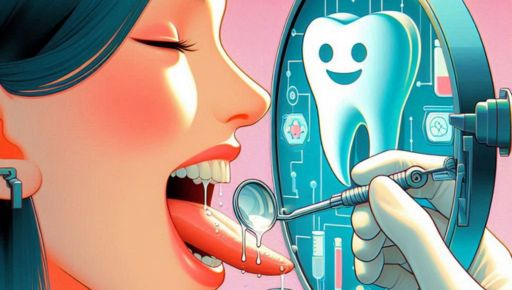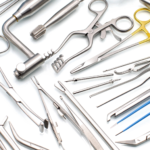
Saliva is vital in maintaining good oral health, and its importance cannot be overstated. As a crucial component of your body’s natural defense system, saliva helps to neutralize acids, remineralize teeth, and wash away bacteria and food particles that can lead to cavities and gum disease.
At our dental clinic Wantagh, NY, we emphasize the significance of saliva in preventing oral health issues and promoting overall well-being. A healthy salivary flow can help prevent dry mouth, tooth decay, and gum recession, ensuring a healthier smile.
Understanding Saliva
Saliva is a clear, watery fluid produced by the salivary glands in the mouth, comprising approximately 99% water and 1% dissolved substances. Its composition includes enzymes such as amylase and lysozyme, mucins (glycoproteins), electrolytes (sodium, potassium, calcium, magnesium), and antibodies (immunoglobulins). These components work together to facilitate digestion, neutralize acids, remineralize teeth, and maintain oral health.
Exploring The Functions of Saliva
Saliva performs several critical functions that ensure optimal oral health:
- Neutralization of Acids: Saliva helps neutralize acids produced by bacteria, preventing tooth erosion and decay.
- Remineralization: Saliva contains calcium and phosphate ions, which remineralize teeth, strengthening tooth enamel.
- Antibacterial Properties: Saliva contains enzymes that break down bacterial cell walls, preventing infection.
- Lubrication: Saliva facilitates smooth chewing, swallowing, and speaking.
- Buffering: Saliva helps maintain the oral pH balance, preventing extreme acidity or alkalinity.
Potential Benefits of Saliva
The benefits of saliva extend beyond oral health:
- Tooth Decay Prevention: Saliva helps prevent tooth decay by neutralizing acids and remineralizing teeth.
- Gum Disease Prevention: Saliva’s antibacterial properties help prevent gum disease.
- Oral Cancer Prevention: Saliva contains enzymes that may help prevent oral cancer.
- Digestion: Saliva contains enzymes that break down food, initiating digestion.
- Overall Health: Saliva’s antibacterial properties may help prevent systemic infections.
Consequences of Inadequate Salivary Production
Inadequate saliva production, also known as hyposalivation or xerostomia, can lead to various oral and systemic health issues.
Oral Health Consequences
- Tooth Decay: Increased risk of tooth decay and erosion due to reduced saliva’s neutralizing and remineralizing abilities.
- Gum Disease: Increased risk of gum disease and recession due to decreased saliva’s antibacterial properties.
- Oral Infections: Increased risk of oral infections, such as thrush and periodontal disease.
- Dry Mouth: Persistent dryness, leading to discomfort, difficulty swallowing, and altered taste.
- Bad Breath: Reduced saliva’s cleansing ability, leading to halitosis.
Systemic Health Consequences
- Digestive Issues: Impaired digestion, leading to bloating, gas, and malabsorption.
- Nutritional Deficiencies: Reduced saliva’s enzymatic activity, impairing nutrient breakdown.
- Increased Risk of Systemic Diseases: Links to diabetes, Sjögren’s syndrome, and other autoimmune disorders.
- Mental Health Impacts: Anxiety, depression, and reduced quality of life due to chronic dry mouth.
- Sleep Disturbances: Disrupted sleep patterns due to dry mouth and discomfort.
Other Consequences
- Difficulty Swallowing: Impaired swallowing function, leading to choking hazards.
- Speech Difficulties: Altered speech due to dry mouth and reduced saliva’s lubricating properties.
- Mouth Sores: Increased risk of mouth sores and ulcers.
- Dental Work Complications: Impaired healing and increased risk of complications after dental procedures.
- Reduced Quality of Life: Impact on daily activities, social interactions, and overall well-being.
Effective Ways To Promote Healthy Salivary Production
To maintain optimal salivary production:
- Stay Hydrated: Drink plenty of water.
- Chew Sugar-Free Gum: Stimulates salivary production.
- Eat Saliva-Stimulating Foods: Citrus fruits, sour candies, and spicy foods.
- Avoid Certain Medications: Consult your doctor about alternative medications to the ones causing a reduction in saliva production.
- Manage Stress: Stress can reduce salivary production.
- Get Enough Sleep: Adequate sleep promotes saliva production
- Medications: Consult your dentist about medicines that increase saliva production.
Saliva is a vital component of oral health, protecting against tooth decay, gum disease, and oral infections. Understanding the importance of saliva and promoting healthy salivary production can help maintain optimal oral health. By recognizing the functions and benefits of saliva, we can appreciate the unsung hero of oral health and take steps to preserve its natural protective mechanisms.














